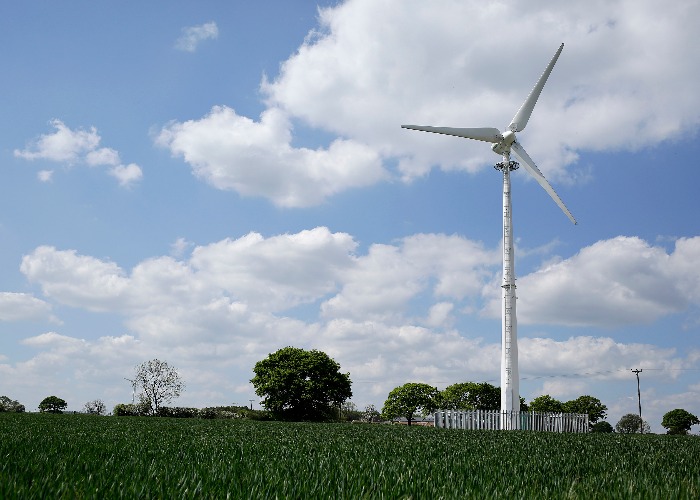Assetz Capital promises 7% return from investing in green energy projects

New Green Energy Income Account targeting 7% annual return.
Assetz Capital has launched the Green Energy Income Account, a new peer-to-peer loan which it promises will deliver investors with a return of as much as 7% a year.
With this new product, your money is lent out to various green energy projects, such as installing solar panels and wind turbines. Assetz claims that over the past 18 months its investors have lent a whopping £10 million to renewable energy projects across the UK.
What do you get for your money?
The Green Energy Income Account has a target return of 7% a year before tax. This 7% target return comes in the form of a monthly income, generated by three-year loans to eco-friendly projects such as on-shore wind farms and solar-panel installations. After these loans are repaid, Assetz returns investors' capital to their accounts.
You can invest from as little as £1 - Assetz then lends the money out on your behalf to a wide range of renewable-energy businesses and projects, so you don't need to worry about trawling through the different ongoing projects to work out which ones you want to put your money into.
How safe is my money?
As with any form of investing, the Green Energy Income Account is not a risk-free proposition. Here are the main risks investors face when putting money into this product:
-
UK savings accounts are protected by a government safety-net known as the Financial Services Compensation Scheme (FSCS). This covers 100% of the first £85,000 of savings per individual per institution. Peer-to-peer lending is not covered by the FSCS, so investors losing money would not be bailed out by the state.
-
In theory, you could lose up to 100% of the money you invest into peer-to-peer accounts. To offset this risk of loss, Assetz takes security over project assets worth at least 140% of the value of every loan. Also, all projects must be backed by long-term government contractual subsidies, plus Assetz has set up a provision fund to offset delays or losses to income and capital.
-
This is a highly illiquid investment, which means that it is difficult to get your money out early. The only way to withdraw your money prematurely would be to sell your loans (in whole or in part) via Assetz's after-market, but such sales would be subject to demand.
-
If demand for these loans falls among investors, then you could make a loss when selling out early. Also, if and when interest rates move up in the future, this could reduce the value of your loans if you decide to bail out early, exposing your investment to interest-rate risk.
Green investments are booming
Right now, the market for renewable and sustainable energy sources is booming. Just last month, UK green-energy output overtook nuclear for the first time ever. By investing in the Green Energy Income Account, investors can earn higher returns and help to curb fossil-fuel usage at the same time.
What's more, the Government is pouring public money into finding the fuel providers of tomorrow. This means that many of the firms Assetz lends to have revenues backed by long-term Government funding.
In addition, the UK government has promised that, by 2020, 15% of the UK’s total energy requirements will be met from green sources. Indeed, with all political parties lending their support to the growth of low-carbon technologies, this is a market set to boom in the second half of this decade.
More on investing:
The currency swindle that's costing your pension
FSCP demands reform of 'hidden' investment charges
Comments
Be the first to comment
Do you want to comment on this article? You need to be signed in for this feature